|
“We are having the wrong conversations that give the wrong impression. Let’s change the conversation about immigrants.” Our very own Rev. Kate Kooyman opened the inaugural gathering for the Blessings Not A Burden initiative on June 23. Around 75 people met at the Taqueria El Rincon Mexicano for a deeply delicious pupusa buffet, and to celebrate the truth: immigrants add to, not subtract from, our society—economically, culturally, spiritually. Earlier that day, the Supreme Court's tie vote had upheld the lower court's block of President Obama’s executive actions on immigration that expanded Deferred Action for Childhood Arrivals (DACA) and created Deferred Action for Parents of Americans (DAPA). That decision affected a number of speakers. Following are the speakers in their own words. Colin Watson, Director of Ministries and Administration of the Christian Reformed Church, born in British Guiana (now Guyana) Why do we care about immigration? About the plight of immigrants? We can’t avoid it. It’s right at the core of our faith, of God’s command to love our neighbor. We can’t escape God’s use of immigrants, how he’s used the foreigner, the sojourner—God uses the Other to bring a blessing to the world. Throughout history, God has been using the Other, the ones considered less-than, to bless the world. God used Ruth’s line—Ruth, an immigrant—to birth King David, to birth Jesus. We can’t avoid this. It comes straight from our faith, from the Bible, from our God…. Any time we hear people being Othered, our antennas should go up and we need to speak up. Lucy Godoy Kessler, co-owner of Taqueria El Rincon Mexicano, born in Honduras I am a little bit sad. I am happy that people like you want to support immigrants and our struggle in this country. But I am sad that the Supreme Court was not able to help generations of people who have been in this country. We all come from immigrants. Immigrants leave our families and countries with immense desire to work hard. We in the Hispanic community work hard and start businesses. We can see it all in Grand Rapids, in Grandville Avenue, 28th Street—but not only restaurants, it’s bakeries, beauty salons, technical companies. We have a good community of artists and people who work for education. Forty percent of Fortune 500 companies were started by immigrants and they employ 3.6 million people. These are companies like Google, like eBay. So how can we be a burden? 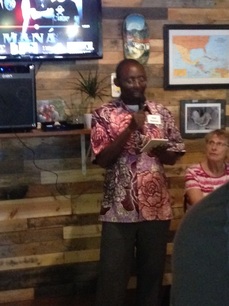 Sepa Nashale, born in Democratic Republic of Congo Be patient with me, English is my fifth language. When refugees come here, we face so many challenges. Learning English. Finding jobs; we come from good jobs in our country, but we have to work in factories when we get here. Finding housing. The kids go to school and want to copy the other kids, and we worry they will lose our culture. Transportation, when not knowing English is a barrier to a driver’s license. Immigrants and refugees do not have choice, they are taking any job they can, and the U.S. benefits from our young labor. When we work hard, we go to university, we buy homes, we contribute to the country. I’ve been living in Grand Rapids for three years now. I am going to Calvin College and I am working to support my family, five kids and my wife. I am a member of the Refugee Task Force at Church of the Servant. When I came I was welcomed and I feel I’m home. Shannon Jammal-Hollemans, Christian Reformed Church Office of Social Justice, born in U.S. I am a proud Arab-American. My father grew up in Lebanon in poverty…he had to leave school after 8th grade. When he came to Grand Rapids, he started a business that has employed local people for decades. Michigan has the highest percentage of Arab-Americans in the U.S.; they contribute $544 million to the Michigan economy. For every immigrant that comes here, one and a half jobs are created. When an immigrant starts a business, they employ local people—and immigrants are three times more likely to start a business than those of us native-born. My father’s also a Muslim, so Trump’s rhetoric disturbs me…. My Christian faith has been shaped by my Muslim father. 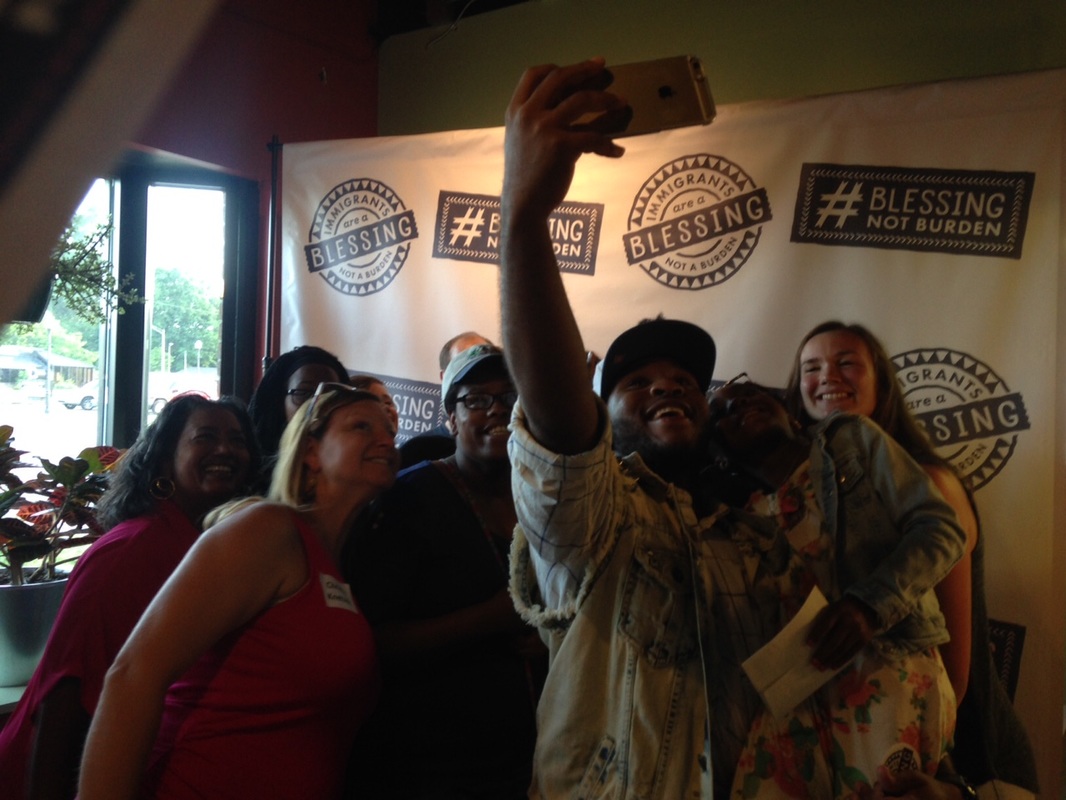 Christie Carlin Knetsch (with the sunglasses) with some of those young people who give her hope. Christie Carlin Knetsch (with the sunglasses) with some of those young people who give her hope. Christie Carlin Knetsch, Director of Student Ministry, Madison Square Church, born in U.S. I was born to a teen mom who was 15 when she gave birth to me. When you grow up like that, often you wind up in a lot of transition…. The immigrant was the family that made a safe place for me when in a dangerous place. They were from Egypt, and their daughter was my friend. I could knock on her window in the night and she’d take me in. In the morning, her mother would give me food and pray over me as she did her own children. I wouldn’t be who I am without immigrants. My husband is Canadian. Because of our white skin, we have a privilege that our darker-skinned brothers and sisters do not. I’ve seen first hand how we get pushed through a line because it’s assumed we’re no trouble, and we see others who we’d been waiting with get interrogated and treated inhumanely because of the color of their skin. As a believer, it’s my job to make sure we have safe places for young people to talk about these things. I have hope, because it’s young people of all shades who will stand hand-in-hand and demand that our system change. 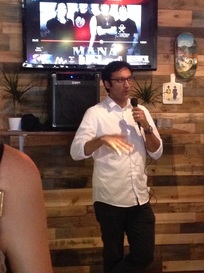 Mariano Avila, reporter for WGVU, born in Mexico Mexicans are descendants of Native Mexicans and the Spanish—the oppressed and the oppressor. That's my inheritance. If you’re white and European, you’ve inherited the history of genocide and ethnic cleansing. Whether you like it or not, you have benefited from genocide and ethnic cleansing. Your children will have that inheritance whether you like it or not. But what you inherit to your children is yours. What will it be? Will you continue the system of Othering and ethnic cleansing? Or will you welcome the Other? My challenge to you is to make sure your inheritance is not what you inherited. Kate Kooyman (CRC Office of Social Justice, born in U.S.) spoke at the end, telling us that the final speaker of the night had hoped to come and speak, but she felt very empty and discouraged, because her parents and her parents-in-law could have gotten legal status if DAPA had been upheld. She is worried. Kate reminded us that, “Policy impacts people.”
The Blessing Not Burden initiative has a few ways to be involved.
* This article was written by Natalie Hart, born in Canada, her father born in the Netherlands. Please forgive me for not having more/better photos of the event. It turns out that I can’t juggle my plate, my phone, my notepad, and my pen without shaking.
2 Comments
|
AuthorNatalie Hart Archives
September 2023
|
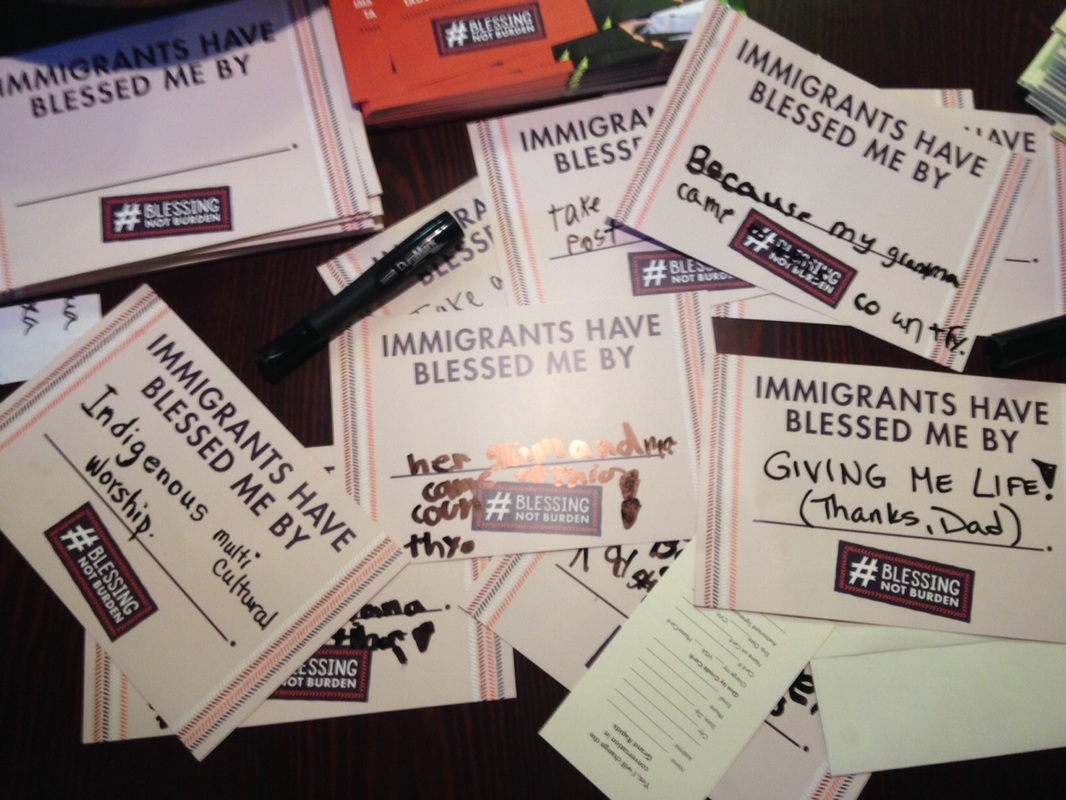
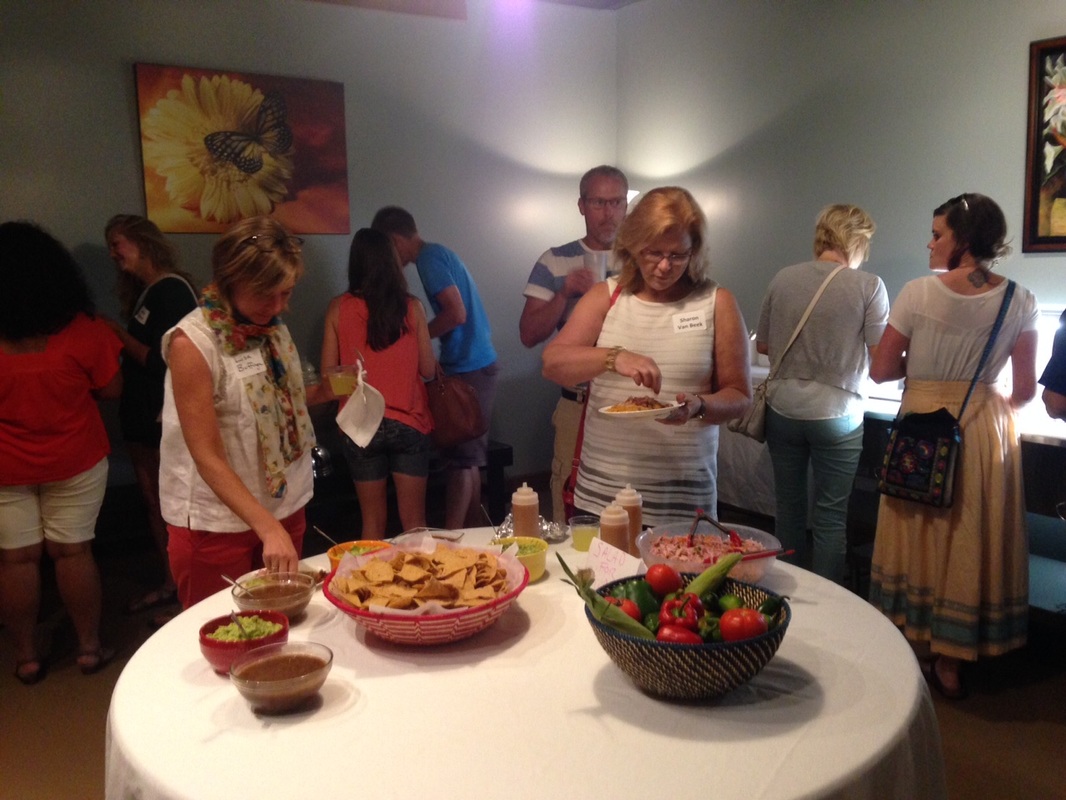
 RSS Feed
RSS Feed